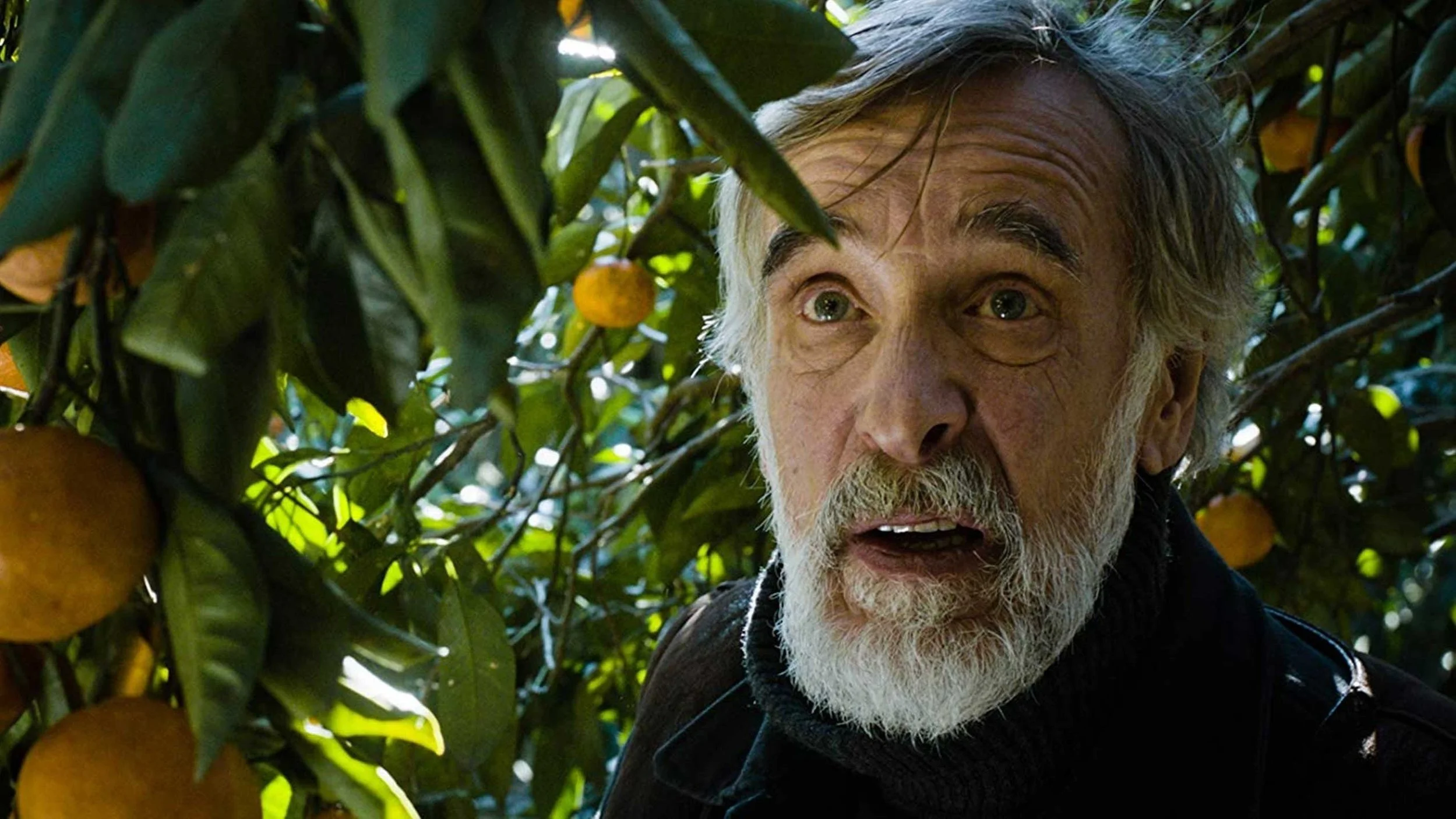Tangerines
Cinema is not short of masterpieces depicting the folly of war. They range from two films made in 1930, Pabst’s Westfront 1918 and Lewis Milestone’s All Quiet on the Western Front, by way of Kubrick’s Paths of glory (1957) to Wajda’s Katýn (2007). Despite its heartfelt humanity, Tangerines from the Estonian writer/director Zaza Urushadze is not quite in their league, but that is only to say that it is a minor masterpiece rather than a major one, and it is in any case one of the best of this year’s releases. Urushadze, setting his tale in the Abkhazia region of Georgia in the early 1990s, is depicting an area in which many Estonians had settled. However his story begins at a time when, on account of escalating military conflict between Georgian soldiers and separatists supported by Chechen mercenaries, the official advice is that Estonians living there should return to their homeland.
That is the background against which we are introduced to the film’s four main characters. The central figure is the elderly carpenter Ivo (Lembit Ulfsak) who, for reasons tellingly revealed only at a late stage in the film, chooses not to heed the official advice. A fellow Estonian, his neighbour Margus (Elmo Nüganen), is a friend and Ivo supplies wooden crates for the sale of the tangerines that Margus cultivates. In all probability the film’s title was chosen to reflect the fact that in a region increasingly made dangerous by warfare the endeavour being undertaken by these two can be thought of as a civilised pursuit.
The third main character is Ahmed (Giorgi Nakhashidze), a Chechen mercenary who comes across Ivo in the opening minutes of the film. When, subsequently, a violent confrontation takes place close to Ivo’s rural retreat, he finds that Ahmed and a companion have encountered a vehicle containing three Georgian soldiers and that Ahmed, albeit wounded, is the only one left standing. Being humane, Ivo seeks to bury the dead and to give temporary shelter to Ahmed since he knows a doctor who can be summoned to give aid.
What happens next has been disclosed in some reviews and is, indeed, even made clear in the trailer for Tangerines. But, not least because there is a surprise development early on, I think that it is much better for the audience to discover the plot only as they watch it unfold. I will therefore not reveal the identity of the fourth key figure played by Mikheil Meckhi, but will merely confirm that, despite some action later, this is a war film without battles and one that is set for the most part inside Ivo’s home. Here the four main characters interact in ways not always predictable but always convincing and it is not inappropriate to think of this as a chamber work (it is no criticism to say that, although apparently a screen original, one can imagine the tale being acted out on a stage).
Tangerines has been recognised sufficiently for it to have been nominated for an Oscar earlier this year and many have praised it. Even so, I have detected comments that suggest that the characterisations are rather too simplistic and are as they are in order to make a point. That criticism might have validity if the film were wholly naturalistic in style but, while avoiding anything that could be thought of as stylised, Tangerines comes across as a fable. Its characters are comparable to those in Atiq Rahimi’s very fine study of the position of women in the Middle East as seen in The Patience Stone (2012). There too the characters without losing veracity were designed to express a viewpoint and, once that was understood, the device worked perfectly. So too here where the approach matches the theme since Urushadze’s focus is on common humanity and the need to act on it. In his story people presented initially without much background information or detail gradually reveal themselves – to us and to each other. As they start to see the others as individuals their concern for one another starts to develop and, in turn, our concern for these men and their fate results in a narrative that grips ever tighter. The unobtrusive direction and the fine acting are at the service of what the film has to say and Urushadze, knowing exactly what that is, delivers. In so doing he bypasses the specific time and place to comment clear-sightedly on the world at large: there is no sentimentality, but a hope that hope is possible.
MANSEL STIMPSON
Cast: Lembit Ulfsak, Giorgi Nakhashidze, Elmo Nüganen, Mikhail Meskhi, Raivo Trass.
Dir Zaza Urushadze, Pro Ivo Felt and Zaza Urushadze, Screenplay Zaza Uryshadze, from an idea by Artur Veeber, Zaza Urushadze and Tatjana Mülbeier, Ph Rein Kotov, Pro Des Thea Telia, Ed Alexander Kuranov, Music Niaz Diasamidze, Costumes Simon Machabeli.
Eurimages/Estonian Film Foundation/Georgian Film Centre/Cinema 24-Axiom Films.
86 mins. Estonia/Georgia. 2013. Rel: 18 September 2015. Cert. 15.


